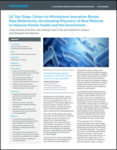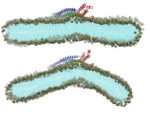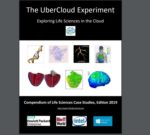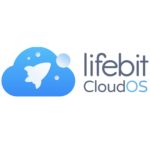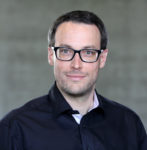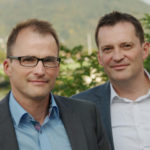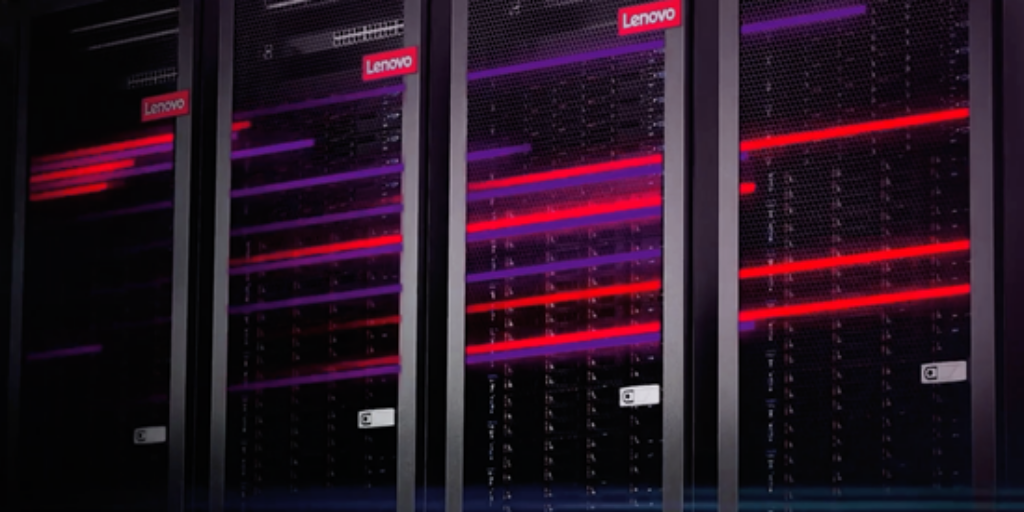In this compelling use case provided by our friends over at HPC storage solution provider Panasas, we look at how the UC San Diego Center for Microbiome Innovation (CMI) got around a number of hurdles by deploying a Panasas ActiveStor® high-performance storage solution.
UC San Diego Center for Microbiome Innovation Breaks Data Bottlenecks
XSEDE Supercomputers Complete Simulations Pertinent to coronavirus, DNA Replication
Fundamental research supported by XSEDE supercomputers could help lead to new strategies and better technology that combats infectious and genetic diseases. “Chemical reactions, life, doesn’t happen that quickly,” Roston said. “It happens on a timescale of people talking to each other. Bridging this gap in timescale of many, many orders of magnitude requires many steps in your simulations. It very quickly becomes computationally intractable.”
UberCloud Publishes Compendium Of Case Studies in Life Sciences
If you are considering moving some of your HPC workload to the Cloud, nothing leads the way like a good set of case studies in your scientific domain. To this end, our good friends at the UberCloud have published a compendium entitled, Exploring Life Sciences in the Cloud. The document includes 36 CFD case studies summarizing HPC Cloud projects that the UberCloud has performed together with the engineering community over the last six years. “From the 220 cloud experiments we have done so far, we selected 15 case studies related to the life sciences. We document the results of these research teams, their applications, findings, challenges, lessons learned, and recommendations.”
Video: Reasoning About Biology With Data-Driven Approaches
Adam Riesselman from Insitro gave this talk at DOE CSGF 2019. “Biology is quickly becoming a data-driven discipline, in which thousands of biological hypotheses can be answered in a single test tube. I will first highlight the technologies that have enabled this revolution. I will then discuss these advances in the context of understanding natural genetic variation with computational models and their application in predicting the effects of mutations and designing new sets of sequences with desirable properties.”
Michela Taufer presents: Scientific Applications and Heterogeneous Architectures
Michela Taufer from UT Knoxville gave this talk at ATPESC 2019. “This talk discusses two emerging trends in computing (i.e., the convergence of data generation and analytics, and the emergence of edge computing) and how these trends can impact heterogeneous applications. This talk presents case studies of heterogenous applications in precision medicine and precision farming that expand scientist workflows beyond the supercomputing center and shed our reliance on large-scale simulations exclusively, for the sake of scientific discovery.”
Lifebit Launches Federated Genomics Cloud Operating System for Accelerated Discovery
Lifebit CloudOS solves the major barrier faced by the genomics sector: data is often siloed and distributed, inaccessible for multiple parties to analyze. Without the ability to perform analyses across this distributed data the industry is stalled, impeding critical progress in precision medicine and life sciences. “Because it is completely agnostic to the customer’s HPC and cloud infrastructure, workflows and data, Lifebit CloudOS is unlike any other genomics platforms in that it sits natively on one’s cloud/HPC and brings computation to the data instead of the other way around.”
Advancing Progress in Life Sciences
In this special guest feature from Scientific Computing World, Christian Marcazzo, VP and general manager at IDBS highlights trends in life sciences research and development. “As can be seen across most industries, organizations are increasingly moving systems and services to the cloud. For R&D firms, cloud-based software-as-a-service (SaaS) platforms that integrate all systems are the most effective way of overcoming legacy.”
The Algorithms of Life – Scientific Computing for Systems Biology
Ivo Sbalzarini from TU Dresden gave this keynote presentation at ISC 2019. In his talk, Sbalzarini mainly discussed the rapidly growing importance and influence in the life sciences for scientific high-performance computing. “The cooperative, interdisciplinary effort to develop and advance our understanding of life using computational approaches not only places high-performance computing center stage, but also provides stimulating impulses for the future development of this field.”
Video: Leadership performance on the Intel® Xeon® Platinum 9200 series
In this video from ISC 2019, Brian Caslis from Intel describes how the Intel® Xeon® Platinum 9200 series of processors delivers new levels of HPC application performance. “2nd Gen Intel® Xeon® Platinum processors are the foundation for secure, agile, hybrid-cloud data centers. With enhanced hardware-based security and exceptional two, four, and eight+ socket processing performance, these processors are built for mission-critical, real-time analytics, machine learning, artificial intelligence and multi-cloud workloads.”
Welcome to ISC High Performance 2019
In this special guest feature, Martin Meuer and Thomas Meuer set the stage for the ISC High Performance conference, which takes place June 16-20 in Frankfurt. “The opening keynote also reflects our devotion to raising the level scientific research that is presented at the conference. Our commitment to this goal and the academic program, in general, has helped make ISC High Performance a showcase for some of the best HPC-backed research in the world.”

